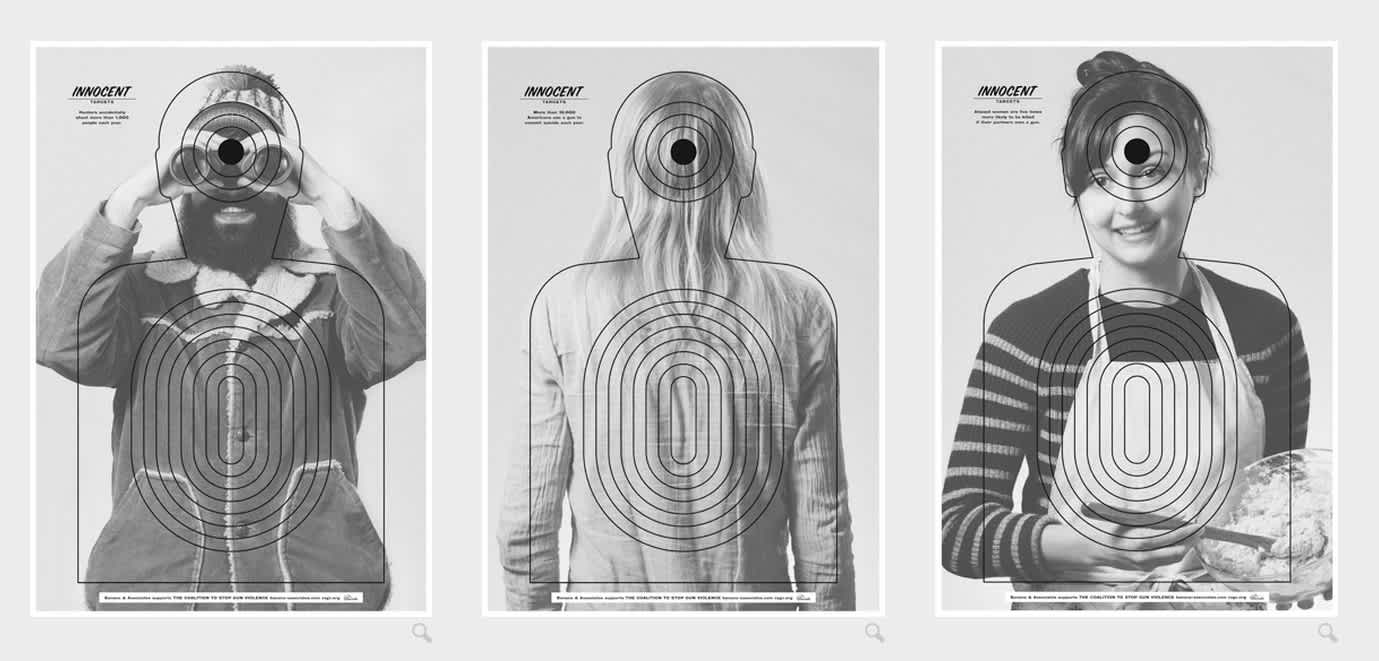“Innocent Targets” is Just More Misrepresentation and Fear Mongering from the Anti-gun Crowd
Matt Korovesis 11.18.14

An art project/guerrilla marketing campaign called “Innocent Targets” recently began making the rounds in online gun communities. Its main exhibit is a series of posters modeled after bad-guy paper targets, but featuring the images of “innocents” (a bride, a pizza delivery man, and a “hunter” who looks like he just walked off the set of a Wes Anderson film, to name a few) instead of the typical terrorist lookalike or mugger. The posters can be purchased online, and proceeds from the purchases go to the Coalition to Stop Gun Violence. According to the project’s creators, Banana and Associates, Innocent Targets is “a reminder of the thousands of lives lost to the deadly gun culture in America and a call-to-action to help us put an end to it.”
However, Innocent Targets’ creators have completely missed the point about the realities of gun violence and gun ownership in the United States, and any kind of impact they might have had is ruined by their own misrepresentation of said realities.
Despite ostensibly presenting in-your-face truths about “gun violence” and “gun culture” in America, Banana and Associates seems to be awfully deceptive with regard to how they present the real data behind gun violence. They state in their thesis that the “painfully ironic truth is that the real targets of gun violence aren’t these fictional ‘bad guys’ but rather our real-life friends, neighbors, co-workers and children.”
The painful truth about Innocent Targets is that they’ve whitewashed the actual victims of gun homicides in the United States—who, by and large, are poor, young, and black. Every single one of the “targets” in the project is white. However, since the demographic of interest of this project is likely middle class, middle-aged, and white Americans, it’s easier to speak to them and motivate them to action (whether that’s donating to anti-gun groups or otherwise) with faces they’re more comfortable seeing.
Aside from Innocent Targets’ comfort-induced misrepresentation, the project seems to be completely focused on forcing Americans’ hands by utilizing a familiar tool: fear. “It is the feeling of safety, and maybe a little bit the feeling of power,” reads The Guardian’s article on the project. “That is what a lot of Americans say they get from gun-owning, which is ironic because if they looked at the statistics they ought to get a feeling of fear.”
I don’t frequent mainstream media websites, but it’s been a long time since I’ve read an article that so explicitly told me to be very, very afraid of something. Granted, the quote above is from the author of the Guardian piece and not the project’s creators, though it seems in-line with their thinking—as is borne out in the remainder of the article’s text. Those guns you have in your safe are just waiting to jump out and start killing innocent people—how can you justify owning them?!
“Ewoudt [one of the project’s authors] had the original idea,” designer Anthony Burrill told the Guardian. “He was just shocked by the level of gun violence, and the way that guns are part of American culture.” This seems to indicate that the project is simple culture-shock-come-art, and Banana and Associates’ decidedly non-American roots (and thus their disconnect from the reality of American violence) seem to confirm this.
Innocent Targets’ points about intra-relationship violence are, unfortunately, true. They are perhaps the only sad, legitimate items of merit from the endeavor. Violence against women (in which fatal violence against women is included) is a broad-reaching problem in dire need of attention in the United States, and it does appear to be exacerbated by an abusive partner’s access to firearms.
However, in the end, gun violence in America (and simply violence in America in general) is an economic and social problem, not a “gun problem.” This reality is difficult for many to come to terms with, as it means that we Americans have a whole heck of a lot more research, thought, and soul-searching to do in order to fix our violence problem. Simply banning firearms wholesale, enacting superficial laws like “enhanced background checks,” or scaring people into ineffective action by using a manipulative image of Nancy Next Door in an attempt to address a deep-running societal issue isn’t likely to fix anything—though such things can make anti-gun advocates feel better. Violence in America is a problem that needs to be solved, but misrepresentation and fear mongering will get us nowhere.

